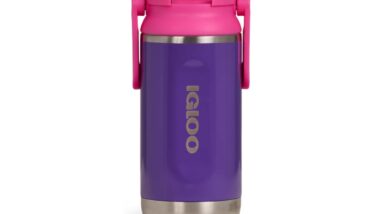
OpenAI nonfiction theft overview:
- Who: Plaintiff Julian Sancton filed a class action lawsuit against OpenAI and Microsoft.
- Why: Sancton claims OpenAI and Microsoft steal the work of nonfiction authors to train their artificial intelligence model without compensation or permission from the authors in violation of the Copyright Act.
- Where: The OpenAI class action lawsuit was filed in New York federal court.
OpenAI and Microsoft violate copyright laws through the theft of nonfiction authors’ work without permission or compensation, according to an OpenAI class action lawsuit filed Nov. 21 in New York Federal court.
Plaintiff Julian Sancton is the author of The New York Times best-seller “Madhouse at the End of the Earth: the Belgica’s Journey into the Dark Antarctic Night,” which documents the true story of an Antarctic polar expedition in the 1890s.
“Plaintiff Sancton dedicated five years of his life and tens of thousands of dollars to completing the book, traveling around the world to Antarctica, Belgium and Norway to complete his research,” according to the OpenAI theft class action lawsuit.
Sancton says this investment of time and money was only feasible because of the “bundle of exclusive rights” the U.S. Copyright Act grants him to his works.
OpenAI class action says defendants disregard authors’ rights under federal copyright law
OpenAI and Microsoft have blatantly disregarded his exclusive rights and those of other nonfiction authors, Sancton asserts. He claims the defendants have made commercial reproductions of millions, if not billions, of copyrighted works without permission and without compensating the authors in order to train their artificial intelligence models.
The defendants collaborated to create and monetize ChatGPT chatbots that can generate text calibrated to mimic a legitimate human response, according to the OpenAI class action lawsuit.
To calibrate the artificial intelligence models, OpenAI and Microsoft reproduced massive amounts of copyrighted material with the intent of building “a machine that is capable (or, as technology advances, will soon be capable) of performing the same type of work for which these writers would be paid,” the OpenAI nonfiction theft class action lawsuit asserts.
Sancton claims that the commercial success of ChatGPT is only possible because of the defendants’ alleged violation of federal copyright laws.
He filed the OpenAI theft class action lawsuit on behalf of himself and other authors who own registered copyrights for works that OpenAI and Microsoft allegedly reproduced and used to train their artificial intelligence models.
The OpenAI nonfiction lawsuit seeks statutory damages, restitution, disgorgement of profits and injunctive relief.
Sancton is not the first author to challenge OpenAI’s use of copyrighted works to train its artificial intelligence models. A similar class action was filed in September in California federal court.
What do you think about the OpenAI class action lawsuit? Tell us your thoughts in the comments.
Sancton is represented by J. Craig Smyser, Justin A. Nelson, Alejandra C. Salinas and Rohit D. Nath of Susman Godfrey LLP.
The OpenAI nonfiction theft class action lawsuit is Julian Sancton v. OpenAI Inc., et al., Case No. 1:23-cv-10211, in the U.S. District Court for the Southern District of New York.
Don’t Miss Out!
Check out our list of Class Action Lawsuits and Class Action Settlements you may qualify to join!
Read About More Class Action Lawsuits & Class Action Settlements:














